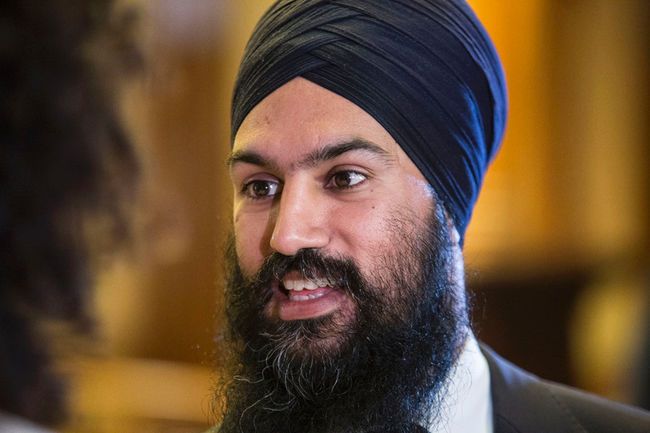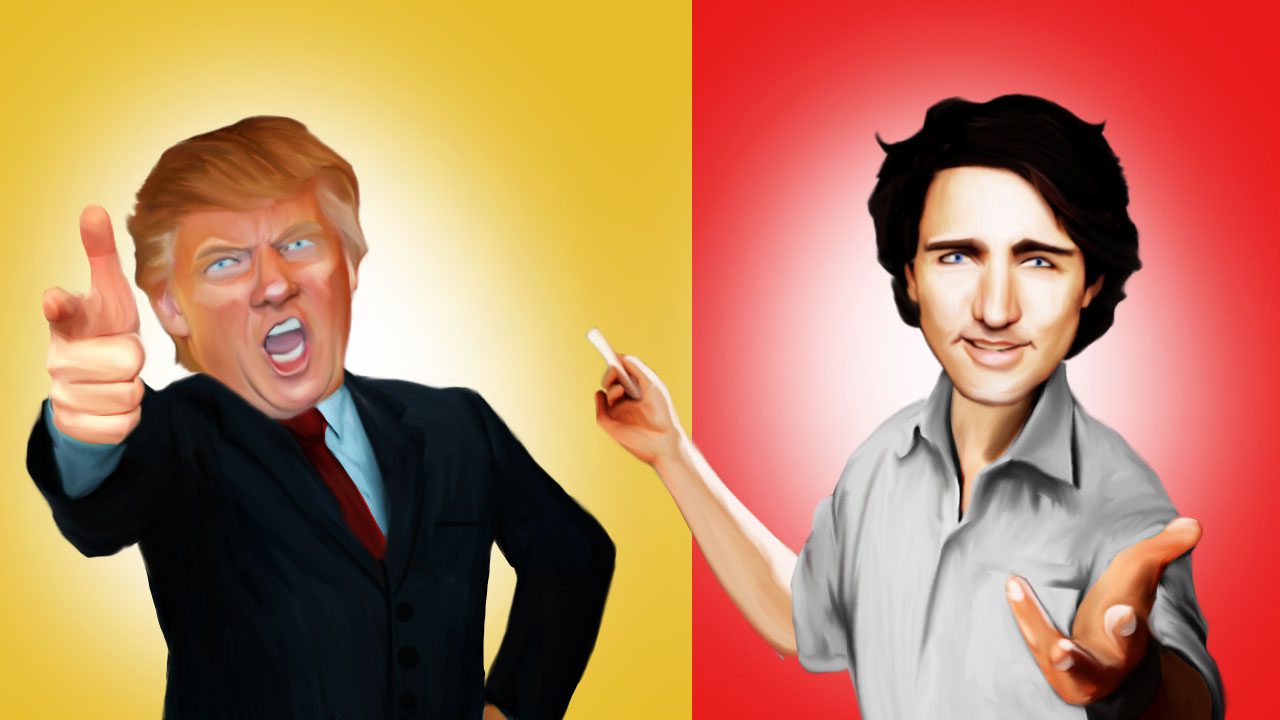Jagmeet Singh carries himself as a man thoroughly comfortable with his old world heritage, a devout Sikh who conceals his never-cut hair beneath a turban and carries a kirpan wherever he goes. Doubtless many members of the NDP — the party he's now running to lead — will feel supremely enlightened when they cast a ballot for this striking symbol of Canadian multiculturalism: the first non-white, non-Christian to have a credible shot as a prime ministerial candidate. Should he become head of the party (which seems likely, given the extraordinary charisma gap between him and his opponents) one imagines the world will soon be bombarded with headlines about how only in hyper-tolerant Canada could such an ostentatiously exotic politician be welcomed.
Singh's political fortunes have obviously yet to fully unfold, yet if he is embraced as widely as expected — not just as NDP leader, but a symbol of something unique and special about Canada — it will occur in spite of any genuine diversity a man of his background might be expected to bring to our politics.
On the surface, what would seem to make Singh most politically interesting is the tension between his socially conservative faith and the secular-progressive worldview of his party.
Sikhism is a strict and organized religion with more than a passing resemblance to Catholicism. It purports the existence of a single judgmental God, acknowledges the authority of a church hierarchy — the highest-ranking figure being the head of India's Akal Takhat temple, which literally translates to "Throne of God" — and offers an explicit code of morality, through the archived teachings of its past gurus and the Sikh Rehit Maryada, an even more utilitarian guide to righteous living.
On the host of what we now refer to as "social issues," Sikhism offers answers little different from those of conservative Christians. Human life is said to begin at conception, and God is said to have created two distinct genders who exist to marry and procreate. Though the faith purports gender equality, men are tasked with unique leadership responsibilities women are not. Drugs and adultery are considered extremely grievous sins.
No one honestly expects Jagmeet Singh to incorporate any of this into his political agenda as New Democrat leader. To the extent he'll be allowed to hold conservative beliefs about gender, human life, sexuality, or marriage, they'll be expected to be deeply private opinions never articulated in public — not even if prefaced by "while I may personally believe…" Indeed, if most secular-progressives are honest with themselves, they'd probably say they don't really want Singh opposing gay marriage or abortion when he's sitting alone with God in a moment of quiet spiritual reflection, either. What they want is for him to march in Toronto's pride parade and call abortion a woman's "right to choose" — which is what he's already done.
For that matter, no NDP member wants Mr. Singh to have a unique perspective on aboriginal or French-Canadian rights informed by his experience as a first-generation Canadian whose family has only been here a few decades. The bigotry he experienced personally, and his family's lack of continuity with the Anglo-Canadian "settler" class, must not detract or moderate his engagement with the white establishment's view that the historic victimization of Canada's French and aboriginal populations outrank those of all other groups, and must therefore enjoy a permanently preeminent place in the national hierarchy of suffering. Singh demonstrated fluency with such expectations in his inaugural campaign speech, where he spoke of learning to appreciate the "parallels" of his own community's struggles to that of the French-Canadians, and listed "reconciliation with indigenous peoples" as one of his four policy priorities.
What progressive voters really want and what Singh seems eager to offer, in sum, is a candidate who while visibly "diverse" offers no perspectives, opinions, or priorities that substantially differ from that of a standard white, urban, irreligious liberal Canadian. This is diversity of the easiest kind — the sort that requires no real tolerance to embrace, since you're not being asked to tolerate anything new or challenging.
As I've said before, I believe Singh has the potential to be a formidable force in Canadian politics. His ardent progressivism (wherever it originates), coupled with a desire among many liberal voters to support a nonwhite prime minister, have strong potential to fracture the left and erode Justin Trudeau's electoral base. But all this ultimately reveals is the superficiality of political diversity in modern Canada: a rainbow of faces with identical minds.
Photo Credit: Toronto Sun
Written by J.J. McCullough








